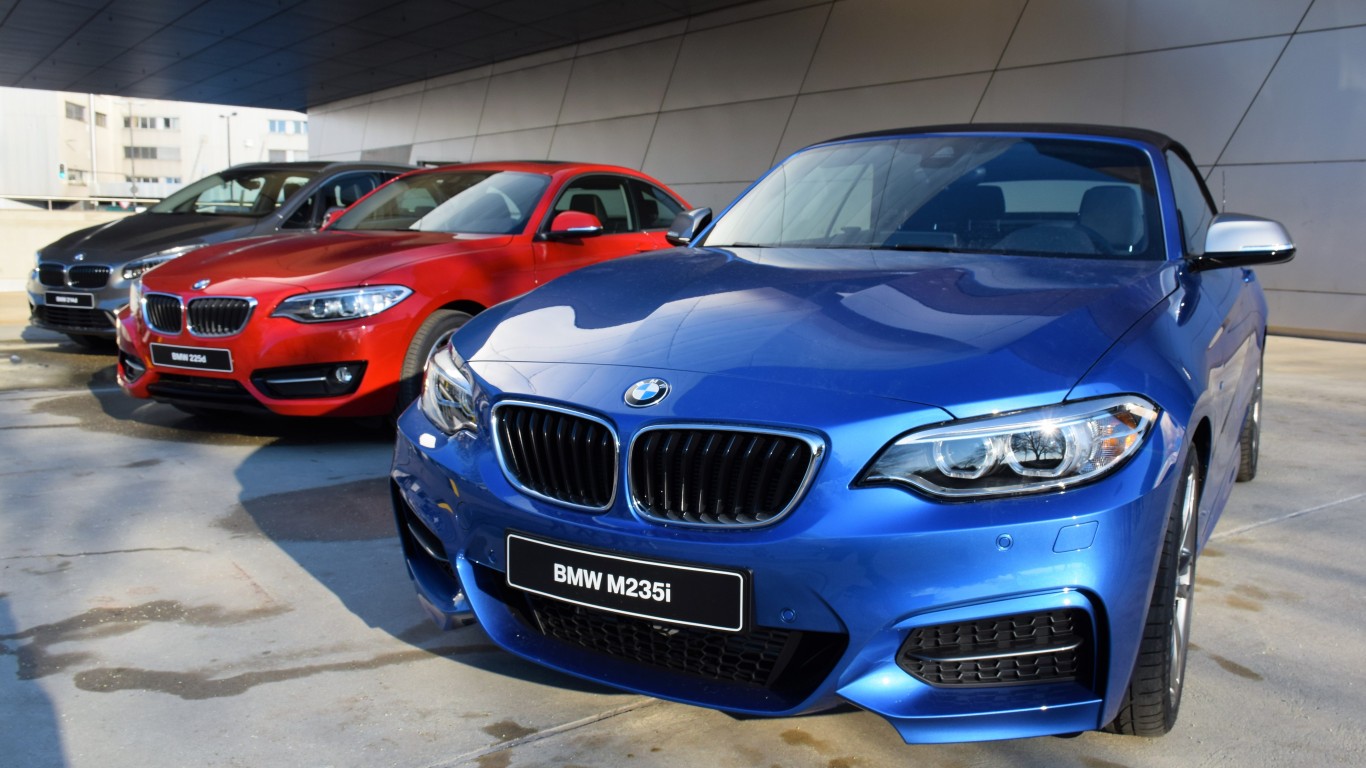
BMW Group
> Pledge: Climate neutral along the entire value chain by 2050
> Quality and credibility of climate planning: Very low
> Revenue, 2020: $112.4 billion
> Emissions, 2020: 67.0 million metric tons of CO2 equivalent
> Major source of emissions: Energy use of sold vehicles (70%); vehicle manufacturing (25%)
While BMW is committed to carbon neutrality by 2050 and to using high quality offsets, it doesn’t disclose how much actual emission reduction is part of its plan. Because about 70% of its value chain emissions is attributed to the energy used by its downstream automobile purchasers, it is important that it commits to a near-term transition to all electric vehicles. BMW does not seem prepared to do this, at least not at a pace consistent with Paris Accord goals. It has set an interim target of 50% reduction in emissions from its cars by 2030, the year in which 95%-100% of all light-duty vehicles sold in BMW’s main markets will need to have zero tailpipe emissions.
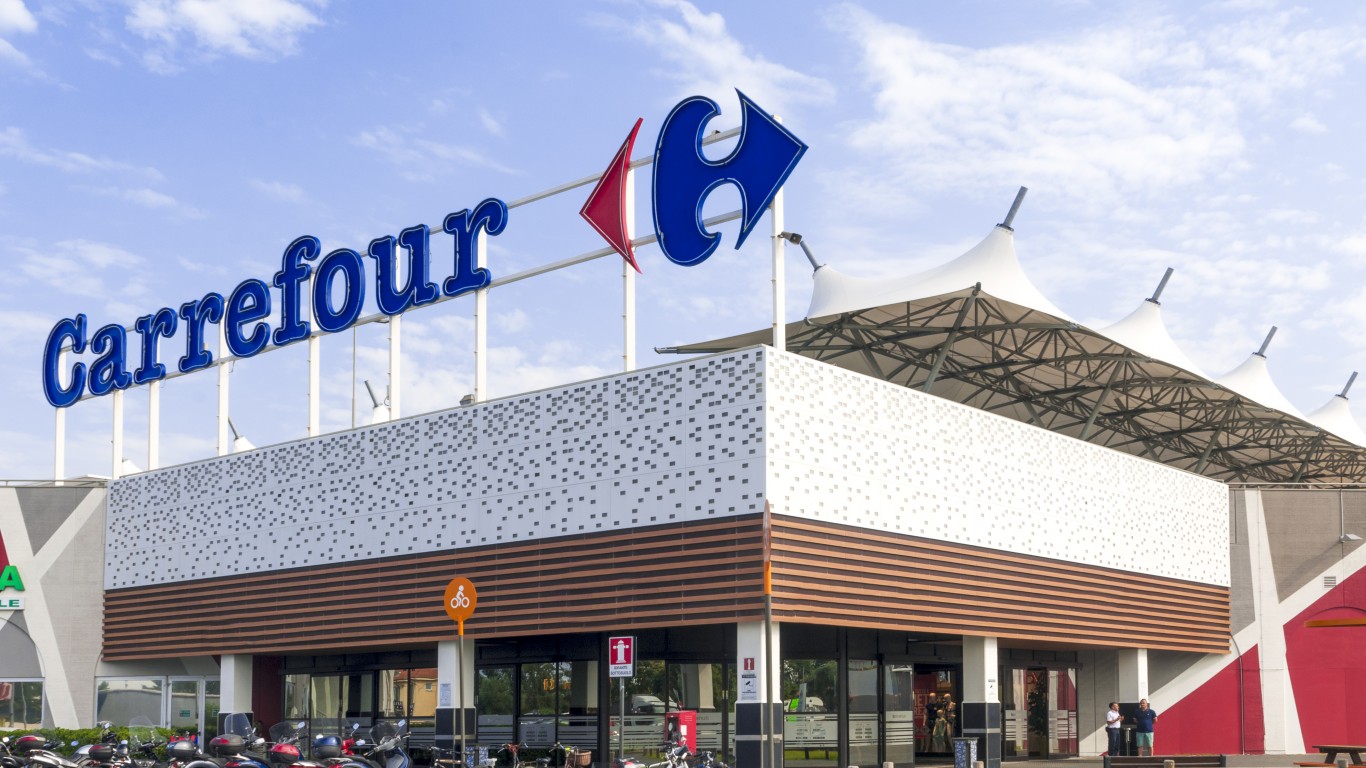
Carrefour
> Pledge: Carbon neutral by 2040
> Quality and credibility of climate planning: Very low
> Revenue, 2020: $82.0 billion
> Emissions, 2020: 95.7 million metric tons of CO2 equivalent
> Major source of emissions: Supply chain for products and packaging account for ~72% of emissions (upstream).
Carrefour, an international retailer based in France, is chided for its undisciplined approach to emission tracking, reduction, and planning. It comes late to the enterprise and appears naive in setting a 2040 goal for carbon neutrality with no credible plan for achieving it. CCRM gives the company some credit for committing to 100% quality alternative energy by 2030, including the installation of on-site sources, but calls the company’s effort “laggard” to date. Solar panels on selected stores around the country account for only 1.5% of Carrefour’s energy use in France.
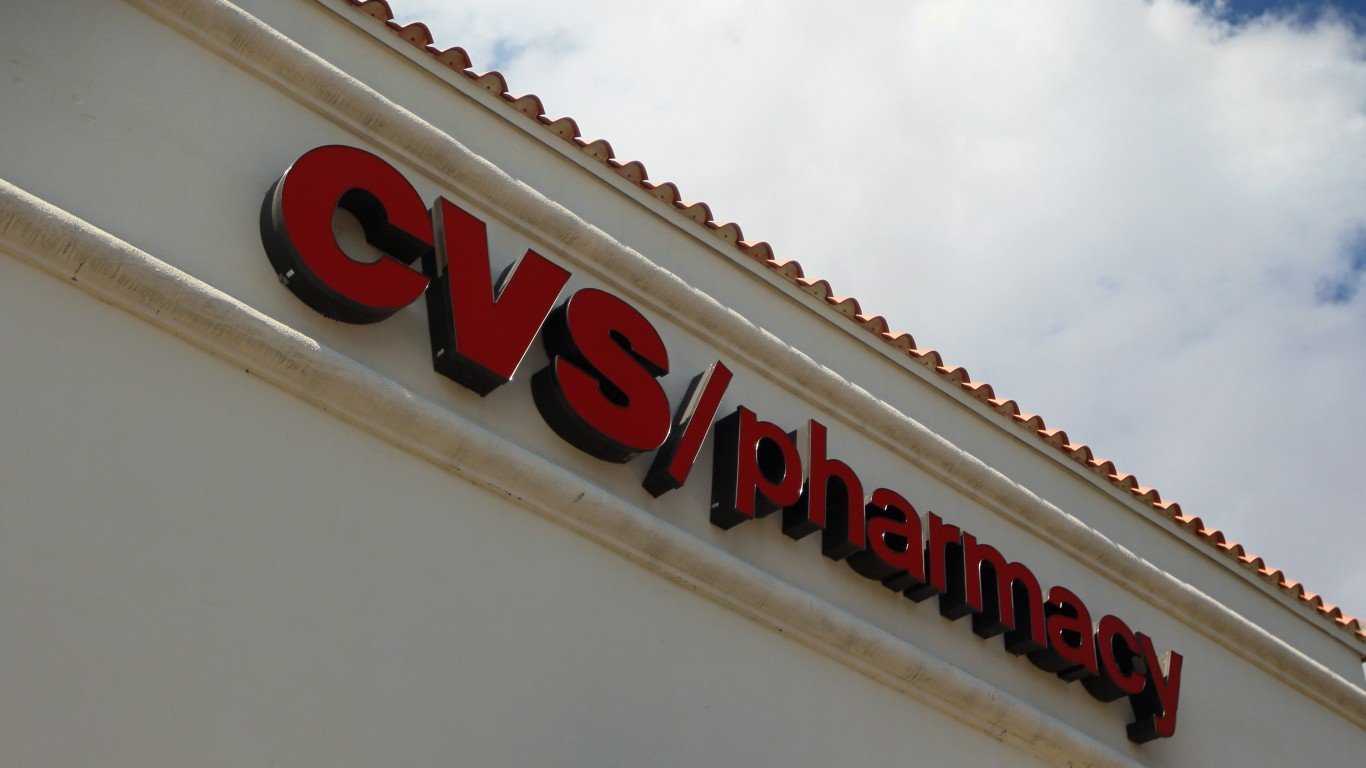
CVS Health
> Pledge: Net-zero emissions by 2050
> Quality and credibility of climate planning: Very low
> Revenue, 2020: $268.7 billion
> Emissions, 2020: 12.0 million metric tons of CO2 equivalent
> Major source of emissions: Purchased goods and services
Though CVS gets a high score for the transparency of its data across its value chain, it gives few clues as to how it intends to meet its emission reduction goals. The report also hints at a purposeful distortion in its goal setting. Without explanation, the company uses 2019 as its base year for measuring reductions, when it appears that its emissions that year were between 70% and 80% higher than in 2017, 2018, and 2020. This makes it possible to claim target reductions, in this case 47% by 2030, without making actual progress.
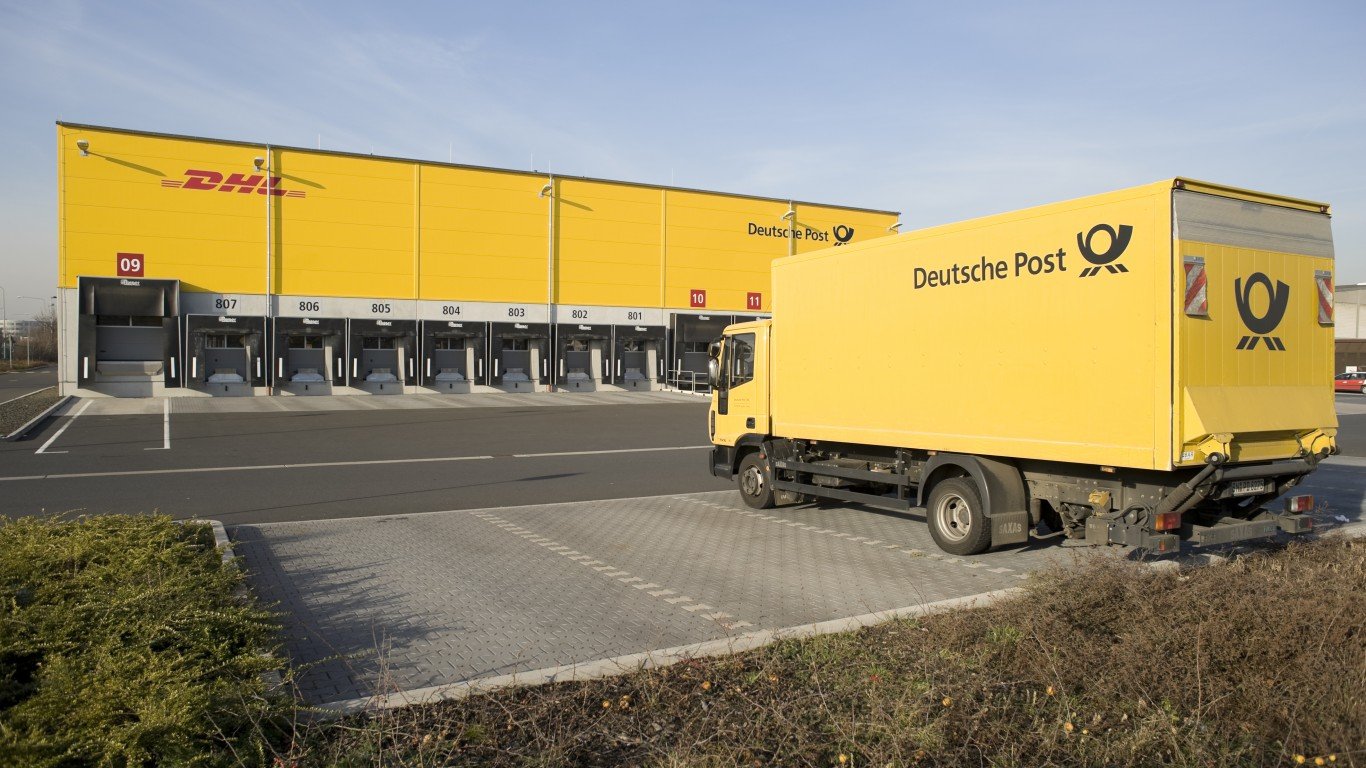
Deutsche Post Dhl
> Pledge: Unclear: Zero or net zero by 2050
> Quality and credibility of climate planning: Very low
> Revenue, 2020: $75.5 billion
> Emissions, 2020: 39.1 million metric tons of CO2 equivalent
> Major source of emissions: Own and subcontractor transport, especially from aviation (64%).
Deutsche Post, along with Sony, Vodafone, and Unilever, gets high marks for transparency for its readily accessible, downloadable emissions data. Still, the company is faulted for its inconsistent and incomplete carbon profile, and for promoting its “carbon neutral” package and letter delivery when, in fact, only 1% of its emissions are offset. The company gets some credit for innovations in the area of electric transport, whereby it reduces energy emissions while also creating cost savings and efficiencies.
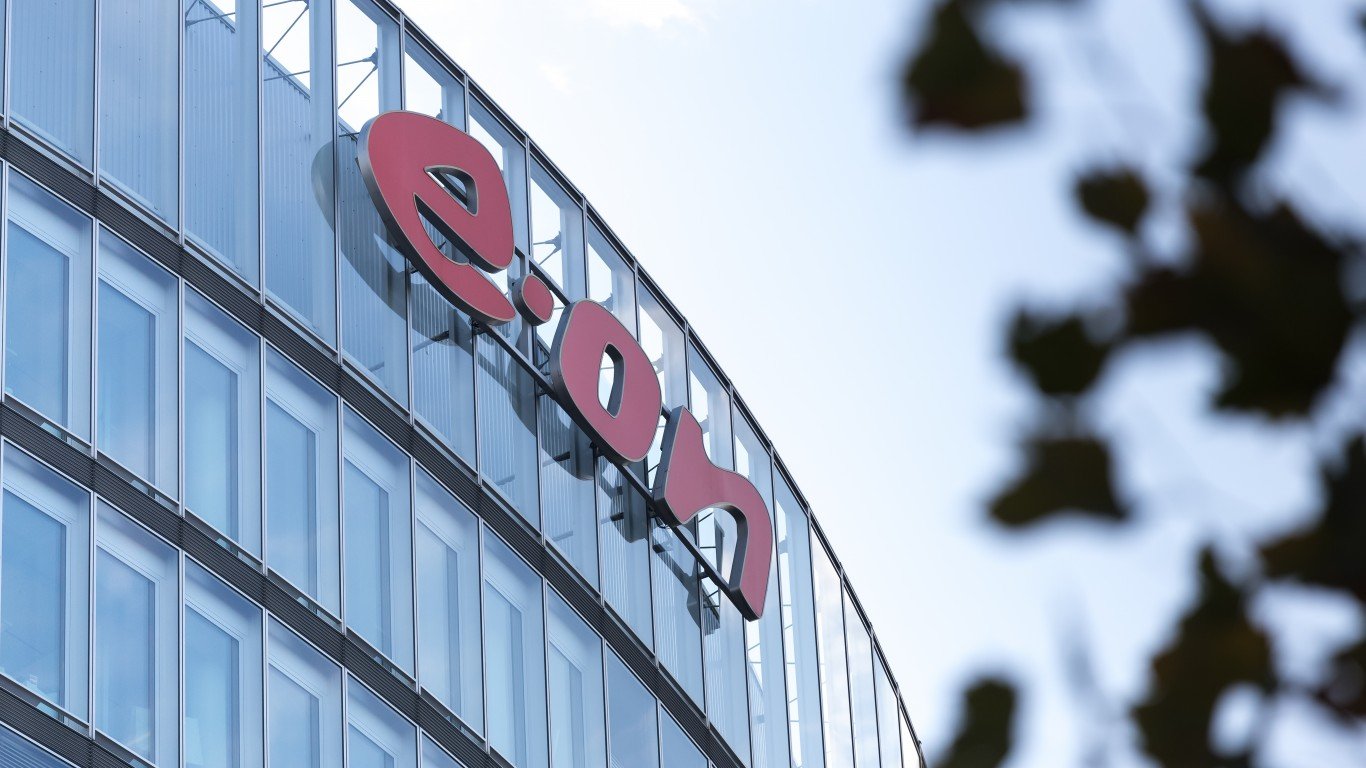
E.On Se
> Pledge: Carbon neutral by 2040
> Quality and credibility of climate planning: Very low
> Revenue, 2020: $69.0 billion
> Emissions, 2020: 116.3 million metric tons of CO2 equivalent
> Major source of emissions: retail gas (downstream gas combustion 36%) and third party generated electricity (downstream energy use 53%).
European energy utility company E.On Se promotes a green image and sets ambitious targets for carbon emission reduction, but it does not clearly explain how it will meet these targets and is misleading in its public pronouncements. It does not make clear, for example, that its pledge of carbon neutrality only applies to its own operations and energy use, which total only 7% of its carbon output. The company has recently restructured and has stated that it will soon be defining concrete measures for meeting its goals, but CCRM sees a lack of ambition in taking the leadership role it claims, particularly in its failure to phase out the sale of gas.






